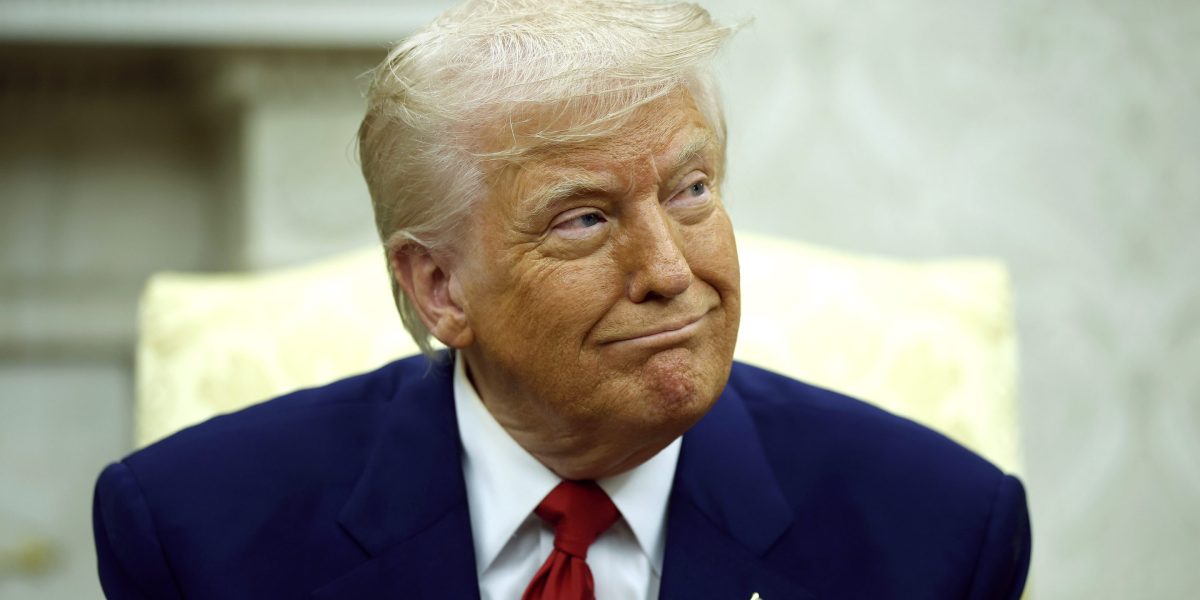President Trump’s tariffs could inadvertently deliver a “massive gift” to China by allowing it to catch up in the AI race and court new partners globally, Adam Thierer, a senior fellow at center-right think tank R Street Institute, tells Fortune.
“It’s going to be very hard for the U.S. to win the so-called AI Cold War if America’s trade policies are simultaneously tanking global markets, discouraging technological investments, and potentially undermining traditional alliances with key allies,” says Thierer, who testified before House lawmakers earlier this week about the threat of Chinese AI models like DeepSeek to U.S. national security.
Those policies, which are disrupting the global supply chain and creating major volatility in global markets, may have the unintended effect of driving U.S. allies into the arms of China for their technology needs. That gives China an unparalleled opportunity to gain more technological supremacy globally. “Suddenly, in the wake of this trade fiasco, we see EU officials saying, ‘Let’s get on the phone with China and talk,’” says Thierer. “Huawei has this telecommunications hardware system they want to sell, and there’s also these AI models that are free of charge.”
But Chinese tech comes embedded with specific values, says Thierer. For example, “if you have Chinese-made hardware, you might be getting Chinese embedded surveillance and censorship along with it,” he said. “Or you at least have the potential for China to have greater leverage over those nations later, when they control these important technological systems.”
It’s no surprise then that China is focused on “technological diffusion”—spreading technology across people, organizations, industries, and countries. In previous industrial revolutions, it was the U.K., and then the U.S., that developed more effective, low-cost products and services that ultimately became market leaders, then national and global leaders in their fields. Now, China wants to use its open-source AI models like DeepSeek in the same way.
That’s why technology executives need to get unified in their response, says Thierer, even though many tech billionaires, including Elon Musk, Mark Zuckerberg, Jeff Bezos, and Sam Altman, donated to Trump’s inauguration fund in the hopes of currying favor on tech policy.
“If they’re all on their own, and they’re just trying to cut deals, they’re not going to get very far,” he says. “But a more concerted stand by a lot of the tech community to talk about how it undermines the broader interest of the technology community, and then the broader interest of the United States around global AI supremacy—that’s what’s important.”
Thierer points to the post–World War II period, when the motion picture industry spread America’s culture and values globally. “A lot of conservatives don’t like to hear this,” he said, but Hollywood’s technology was “really important to broader strategic interests.”
With artificial intelligence, pulling back from the global marketplace allows China and the CCP to fill that void with their own technology, he said: “To me, that is extraordinarily dangerous for America.”
This story was originally featured on Fortune.com
Source link


 Entertainment8 years ago
Entertainment8 years ago
 Politics8 years ago
Politics8 years ago
 Entertainment8 years ago
Entertainment8 years ago
 Entertainment8 years ago
Entertainment8 years ago
 Tech8 years ago
Tech8 years ago
 Tech8 years ago
Tech8 years ago
 Tech8 years ago
Tech8 years ago
 Politics8 years ago
Politics8 years ago






